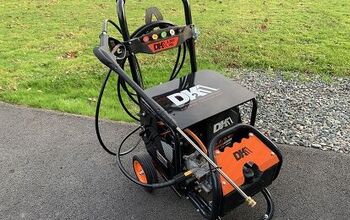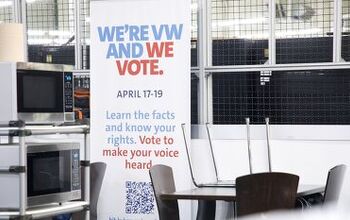Trade War Watch 18: DetNews Fumbles With The Saber
Just over one week ago, a Detroit News piece pointed me towards a letter written by Senators Carl Levin and Debbie Stabenow, which took China to task for considering draft legislation that might possibly require more technology transfers to Chinese companies as a precondition to market access. Having chased down both the letter and the US National Trade Estimate it was based on, as well as several reports on the draft legislation itself, I wrote a lengthy piece about how Senators Levin and Stabenow were rattling the saber about what appeared to be a complete non-issue. In that piece, I not only debunked the senators’ concerns, but I also pointed out that China’s local consumer EV subsidies were the far more worrying potential trade barrier, as we have been hearing that they require that all qualifying EVs be built in China and sold with Chinese brands (a condition at odds with at least the 2004 version of China’s Auto Industry Development Plan, which stated “local governments should encourage fair competition among motor vehicles made by different places on the local market. They are not allowed to carry out any discriminative policy or measure which may lead to discrimination against non-locally manufactured automobile products.”). And it turns out that my 2,000+ words didn’t put everyone to sleep, as a new DetNews piece re-reports the Stabenow/Levin letter with the inclusion of a new motivation never mentioned in their actual letter, to wit:
For electric or plug-in vehicles to qualify for incentives under the proposed rules, they must be produced in China — by a Chinese carmaker or in a joint venture with a Chinese company
Ignoring for a moment that this wasn’t explicitly mentioned in the letter, there’s another issue here: subsidies aside, building any car in China requires a joint-venture. More importantly, China need not establish any barriers to the sale of imported plug-in or hybrid cars for the simple fact that the Toyota Prius’s epically weak sales there prove that imported NEVs can’t compete in the market. Of course subsidies may change that, but even more important is the issue of registration limits: if China requires EVs to be locally-made in order to waive Beijing’s registration restrictions, that could create more of a barrier than any cash subsidy. Meanwhile, neither Daimler nor Toyota nor VW nor BMW seems to have a problem with building EVs locally under a JV (cost and supply chain make Chinese production the logical choice anyway, necessitating a JV). The DetNews (and presumably Senators Levin and Stabenow) are getting closer to understanding the problems with China’s New Energy Vehicle Plan, but it seems they may yet have some more TTAC reading to do.
More by Edward Niedermeyer
Latest Car Reviews
Read moreLatest Product Reviews
Read moreRecent Comments
- Alan Years ago Jack Baruth held a "competition" for a piece from the B&B on the oddest pickup story (or something like that). I think 5 people were awarded the prizes.I never received mine, something about being in Australia. If TTAC is global how do you offer prizes to those overseas or are we omitted on the sly from competing?In the end I lost significant respect for Baruth.
- Alan My view is there are good vehicles from most manufacturers that are worth looking at second hand.I can tell you I don't recommend anything from the Chrysler/Jeep/Fiat/etc gene pool. Toyotas are overly expensive second hand for what they offer, but they seem to be reliable enough.I have a friend who swears by secondhand Subarus and so far he seems to not have had too many issue.As Lou stated many utes, pickups and real SUVs (4x4) seem quite good.
- 28-Cars-Later So is there some kind of undiagnosed disease where every rando thinks their POS is actually valuable?83K miles Ok.new valve cover gasket.Eh, it happens with age. spark plugsOkay, we probably had to be kewl and put in aftermarket iridium plugs, because EVO.new catalytic converterUh, yeah that's bad at 80Kish. Auto tranny failing. From the ad: the SST fails in one of the following ways:Clutch slip has turned into; multiple codes being thrown, shifting a gear or 2 in manual mode (2-3 or 2-4), and limp mode.Codes include: P2733 P2809 P183D P1871Ok that's really bad. So between this and the cat it suggests to me someone jacked up the car real good hooning it, because EVO, and since its not a Toyota it doesn't respond well to hard abuse over time.$20,000, what? Pesos? Zimbabwe Dollars?Try $2,000 USD pal. You're fracked dude, park it in da hood and leave the keys in it.BONUS: Comment in the ad: GLWS but I highly doubt you get any action on this car what so ever at that price with the SST on its way out. That trans can be $10k + to repair.
- 28-Cars-Later Actually Honda seems to have a brilliant mid to long term strategy which I can sum up in one word: tariffs.-BEV sales wane in the US, however they will sell in Europe (and sales will probably increase in Canada depending on how their government proceeds). -The EU Politburo and Canada concluded a trade treaty in 2017, and as of 2024 99% of all tariffs have been eliminated.-Trump in 2018 threatened a 25% tariff on European imported cars in the US and such rhetoric would likely come again should there be an actual election. -By building in Canada, product can still be sold in the US tariff free though USMCA/NAFTA II but it should allow Honda tariff free access to European markets.-However if the product were built in Marysville it could end up subject to tit-for-tat tariff depending on which junta is running the US in 2025. -Profitability on BEV has already been a variable to put it mildly, but to take on a 25% tariff to all of your product effectively shuts you out of that market.
- Lou_BC Actuality a very reasonable question.

































Comments
Join the conversation
Doesn't non-locally mean made in another province, not made in another country